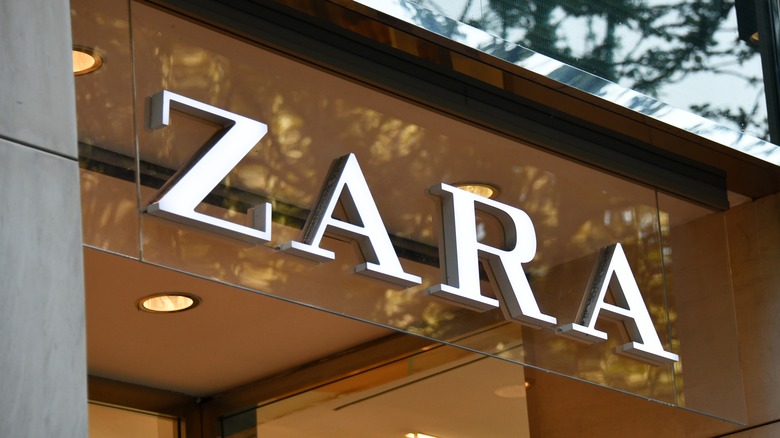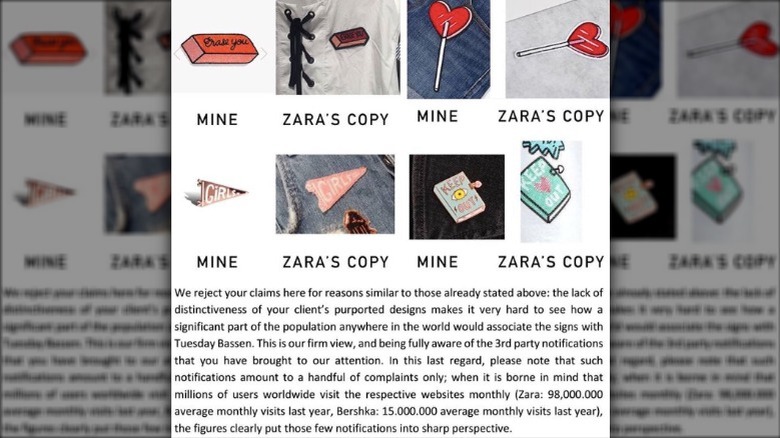The Reason You Should Avoid Shopping At Zara
As we push to save what's left of the Earth and her resources, many are willing to make small changes in daily living habits for a greener world, whether it's paper straws, biking, reusable produce bags, or a more conscious approach to clothing, read: beware fast fashion.
Mending the clothes you have, going to rummage sales, or buying sustainably are all suggestions we've heard floating around in terms of eco-living. But sometimes a corporation is not as green as they claim and it can be tricky for consumers to read between the lines and know if they're secretly being scammed. Unfortunately, Zara is one of these fast fashion operations. The company received a "Not Good Enough" rating in terms of environmental impact from Good On You. Similarly, they received an overall rating of 34/100 in sustainability from Eco-Stylist.
While they boast many claims of green practices on their website, Zara has also been called out for a number of other issues, like plagiarism and unlivable wages. Here's a closer look at why, in addition to not-so-green practices, you may want to think twice before shopping at Zara.
Labor complaints found inside garments by Zara shoppers
In 2017, shoppers in Istanbul found super concerning notes inside Zara clothing. These tags read, "I made this item you're going to buy, but I didn't get paid for it!" This cry for help largely spoke for itself and many protested Zara and its parent company, Inditex (via BBC). While Inditex claimed they were not to blame and that the absence of wages was the responsibility of a third-party manufacturer, Bravo, the heartbreaking situation wasn't a great look for Zara and largely exposed some cruel happenings in these mega fashion corporations.
Because of incidents just like this, fast fashion continues to remain under the microscope. Even if third-party manufacturers are commonplace in the fashion industry, it urges one to wonder how many other similar circumstances are occurring worldwide without our knowledge. Those yard sales and thrift stores are likely sounding better and better by the minute. Or maybe keeping things local and doing a clothing swap among friends is the way to go.
In addition to the reported poor treatment of workers and their lack of sustainability — despite the claims on their website — Zara has also been accused of plagiarizing designs.
Zara has stolen designs from independent artists
Small businesses and indie artists work hard to bring their talent and light to the world. It's no wonder there was quite an uproar in 2016 when artist Tuesday Bassen shared side-by-side images of her pins and Zara's pins, which didn't just resemble hers, they were nearly identical. Thanks to social media, knowledge of the steal spread like wildfire, and fans of the artist were not pleased.
Zara's parent company told Vogue, "Inditex has the utmost respect for the individual creativity of all artists and designers and takes all claims concerning third party intellectual property rights very seriously," However, Bassen tweeted that Zara's lawyers said she didn't have a case as a small business against such a large entity (via CBC).
Whether it's not-so-eco-friendly practices, unpaid labor, or disrespect towards the talent of hardworking artists, Zara has a ways to go in earning its way into the hearts and closets of shoppers.


